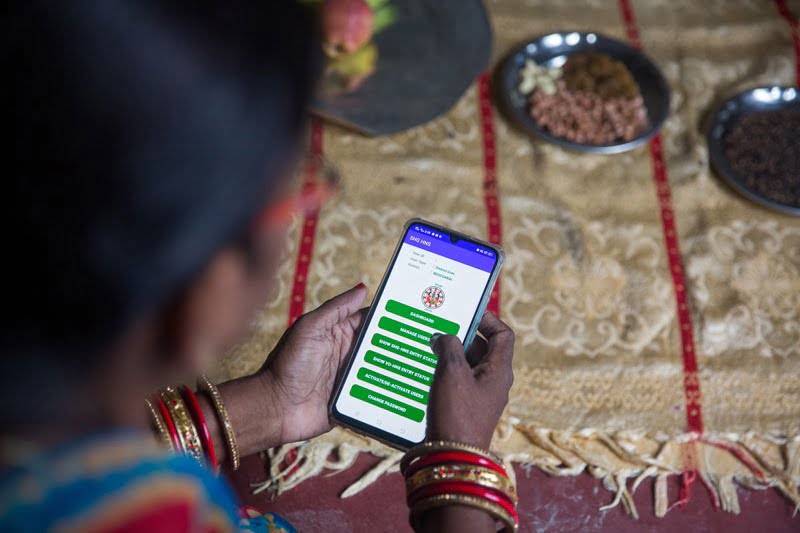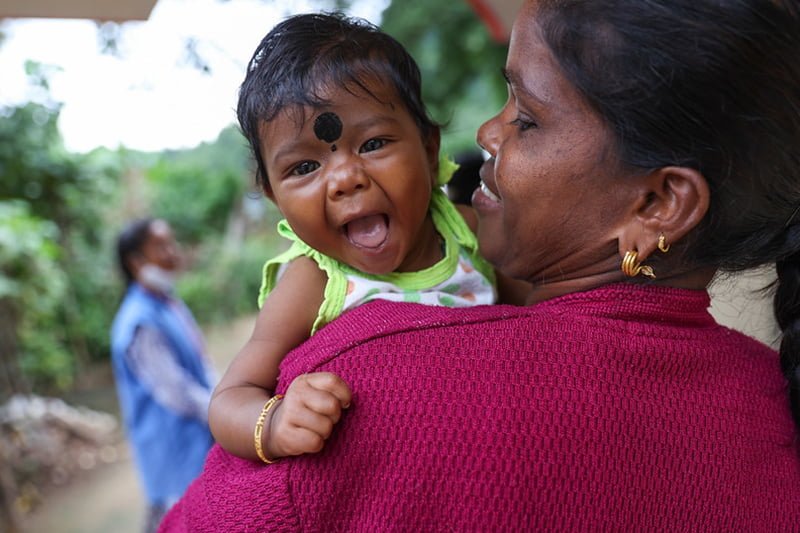A growing debate around the world has begun to question the relevance of feminism as a concept in the 21st century. Many believe that women finally enjoy the same rights as their male counterparts. Some even go as far as to suggest that women exercise a certain amount of privilege over men, owing to the correctional efforts made by governmental and non-governmental organisations to combat social discrimination. The basis of this argument is, however, skewed observational data that is usually presented thus:
“But women roam the streets free and protected now!”
“My female employees are paid just as much as my male ones.”
“Don’t paid maternity leaves put women at an advantage? Where’s the justice here?”
Arguments like these are far from valid on multiple counts, of course, a fundamental one being that these observations can only be made occasionally, and are usually restricted to an urban setting. Questioning the relevance of feminism ignores that the status of women is yet another factor that widens the urban-rural divide in India.
Women in rural India are almost always worse off than their urban counterparts, with a severe lack of resources at their disposal. A 2019 policy report by the International Labour Organisation states that women in rural areas continue to face barriers to active involvement in the economy due to discriminatory social norms, unequal access to education and healthcare, as well as a disproportionate distribution of unpaid labour.
Women in rural India are almost always worse off than their urban counterparts, with a severe lack of resources at their disposal. A 2019 policy report by the International Labour Organisation states that women in rural areas continue to face barriers to active involvement in the economy due to discriminatory social norms, unequal access to education and healthcare, as well as a disproportionate distribution of unpaid labour.

In a developing country like India where the urban-rural divide is wide, interventive measures to ensure development becomes a necessity. To ensure active participation. American India Foundation (AIF) has been at the forefront of creating this change and working towards an equitable future for all.
AIF: Bridging the Developed and the Developing
American India Foundation was conceived to bridge the gap between the largest democracies of the developed and the developing world. A social ecosystem was created that consisted of an interconnected and interrelated web of stakeholders, from Indians based in the country and the Indian diaspora in the US, to the Centre and State governments to the local NGOs working directly with the grassroots. It adheres to a bottom-up approach where the lens of development is allowed to be subjective with the largest stakeholders being the affected population itself, thereby exercising the ethos of democracy that it was built around: of the people, for the people, by the people.
AIF views every member of the Indian community as a valuable stakeholder who is part of the largest growing democracy in the world. Over more than twenty years, AIF has managed to create positive change for over 16.51 million lives across 36 states and union territories, with its intersectional approach to understanding the development sector. Owing to India’s constantly changing demographic, one community’s version of development may widely differ from another community’s.
Banyan Impact Fellowship: Roots Everywhere
AIF’s Banyan Impact Fellowship is one such initiative that attempts to bridge the urban-rural divide, while simultaneously tackling issues of gendered discrimination. More than two decades old, BIF has placed 539 young professionals in 238 grassroots organisations, serving disadvantaged communities across 25 states in India as well as parts of the USA.
Based on the principles of mutual collaboration and leadership development, the fellowship consists of a volunteer service program that allows professionals to extend their expertise in areas that severely require intervention.

Just like AIF, the fellowship too has a strong emphasis on cross-cultural collaboration to build lasting ties between India and the US. Over 10 months, fellows participating in the program work closely with their host communities and local leaders to develop problem-solving abilities. In return, the fellows bring in skills, information, technology and new perspectives that are usually out of reach for the rural ecosystem.
Although BIF’s work spans multiple thematic areas such as public health, education, livelihood development, minority rights, and even climate justice, BIF is cognisant of the intersectional nature of these broad categories. Working in some of the most essential sectors that directly contribute to a citizen’s standard of living, it tackles and attempts to correct the discriminatory practices that continue to exist in the rural ecosystem.
The fellows attempt to come up with innovative solutions to the social injustice that occurs with marginalised groups placed at a hierarchical disadvantage, such as queer communities or rural women. The fellowship lays a strong emphasis on women’s empowerment through economic independence, encouraging girl-child education efforts, combating misinformation about people with disabilities, and so on.
Innovation: Technology and the Developmental Sector
Samhita Vadapalli, for instance, was placed with the Satya Special School in Pondicherry for her fellowship. Her project involved an innovative attempt to digitise data regarding children with physical as well as mental disabilities in rural India. This could then be used for more effective formulation of developmental policies. However, the position of women in rural India severely affected Samhita’s efforts. She dwelled on the fact that male patients with disabilities were treated much differently than female patients.
More than this, however, the lack of accurate scientific information about how these disabilities are caused often led to assumptions that blamed the mother who bore the child. This gendered bias, however, was nothing new for Samhita. She explained how historically, disability studies used primarily male cohorts, and how enough women have not been studied to obtain sufficient data.
This lack of representation affects accurate data collection and skews the result in a way that the real nature of the condition would remain unrevealed. ‘A more diverse group of people are needed for data collection to understand how disability manifests itself in different identities,’ she says, ‘because inclusion and innovation come down to accessibility, not just to information and resources but also to conversation,’ mentioned Samhita.
Samhita’s work with AIF made use of her background in biotechnology in an attempt to fill this gap. The Satya Special School sent people on the ground to record sufficient data and digitise it to make it easily available and accessible for policy-making. Along with this data collection, however, the on-ground team made sure to include their subjects in the developmental process directly.
Samhita believes that in today’s day and age, data can become a powerful tool in the developmental sector. More accurate data can inform policy-making such that any interventive project would tackle development needs with the same level of accuracy. The implementation of policies without correct data would be insufficient to make any real improvement.
‘The 2011 census, which in itself is largely outdated, reveals large data gaps when it comes to the disability space,‘ says the 23-year-old, ‘This is especially concerning when more than 70 per cent of the disabled population is located in rural India. There is a severe lack of information about their lives, their educational needs, marital status, or even health,’ she added.
Samhita’s work with AIF made use of her background in biotechnology in an attempt to fill this gap. The Satya Special School sent people on the ground to record sufficient data and digitise it to make it easily available and accessible for policy-making. Along with this data collection, however, the on-ground team made sure to include their subjects in the developmental process directly. Special care was taken to understand the needs of the disabled rural population, especially their own opinions on what they thought could be improved.
Inclusivity: Understanding Context
This bottom-up approach remains consistent in the work of another fellow, placed in Madhya Pradesh working with ASRA Samajik Lok Kalyan Samiti. 26-year-old Urvashi Suraj, a Chartered Accountant from Mumbai worked to plan and implement livelihood generation schemes, especially for the rural female population. Urvashi shared how one of the reasons she chose to work with AIF was because she wanted to understand what “development,” meant to everyone across communities.
‘I realised I could not possibly sit in Bombay and draft policy for rural Rajasthan, a setup that I was largely unfamiliar with,’ Urvashi said. ‘Context is important. I wanted to understand what development meant to the people for whom these policies were drafted in the first place, and AIF’s fellowship allowed me to do exactly that,’ she adds.
Urvashi’s work required a hands-on approach and constant interaction with the end-beneficiaries so much so that in the 9 months she spent there, Urvashi built lasting relationships with the didis she interacted with. A direct linkage with the people she was working to upskill fueled her against disappointment and when things got hard, this personal connection made sure that Urvashi never faltered.

For example, Urvashi recalled her interaction with the village didis, and how she entered this fellowship strongly disliking tea. ‘I was offered so much tea when I visited the didis that I came out of the fellowship realising tea was an emotion,’ she said, laughingly. Fostering a bond with the communities played an important role and the value of relationships not only sustained developmental efforts but also influenced the effectiveness of the programmes/interventions
Urvashi revealed how family support and internal village dynamics are essential when it comes to engaging in development interventions and accessing government schemes. Women who had supportive husbands and mothers-in-law could attend the training sessions while others who lacked this support were left out of the process despite the stipend offered. The women that did show up, showed low retention of the training material.
The fundamental aim of BIF is exactly this: to introduce innovative efforts and bridge these gendered gaps through professionals such as Urvashi and Samhita. Whether it comes to generating employment opportunities or collecting accurate data, however, FII’s conversation with the two fellows revealed that what remained essential was the facilitation of conversation around these ideas in the first place.
To solve this issue, Urvashi had to come up with informational videos instead of more traditional pamphlets. She realised that she must customise her developmental efforts to suit the needs of her end-beneficiaries, even if this pushed her out of her comfort zone. ‘The fact that I had signed up for it, that I had to be committed to the cause, automatically made it easier for me to adapt and innovate,’ she said. The innovation, much like the fellowship itself, had become bilateral too.
The fundamental aim of BIF is exactly this: to introduce innovative efforts and bridge these gendered gaps through professionals such as Urvashi and Samhita. Whether it comes to generating employment opportunities or collecting accurate data, however, FII’s conversation with the two fellows revealed that what remained essential was the facilitation of conversation around these ideas in the first place.
Inclusion of rural women directly and opening them up to accessing such discourse is fundamental to developmental and empowerment efforts. Only then can we begin to hope for the steady progress of both, urban and rural women alike. After all, we must remember that true democracy means no one gets left behind.
To Know More About Samhita Vadapalli And Urvashi Suraj‘s Work Visit Their Profiles.
About the author(s)
Ananya is a 20-year-old student at Ashoka University, in love with all things literature. She makes great decisions when it comes to movie nights but with life? Not so much.






